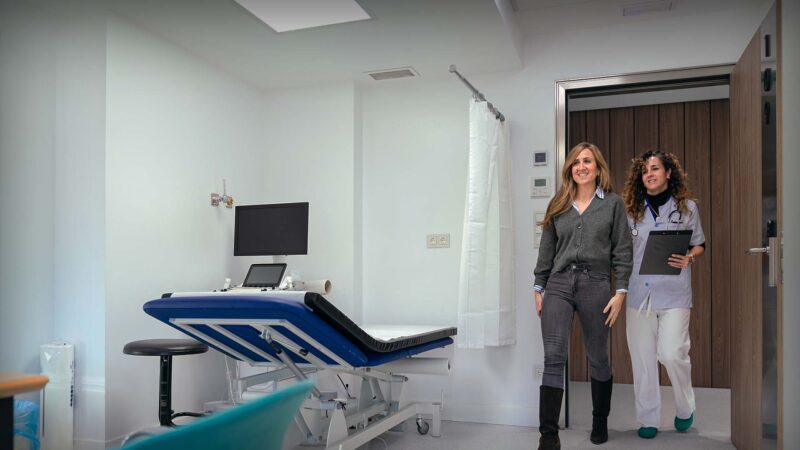WORKING IN PRACTICES WITH CONTRASTING POPULATION NEEDS AND ALTERNATIVE FUNDING MODELS GP runs population relay between practices
People In Health Care Series
Dr Jaspreet Saini, GP
Clinic Director, Healthicare &
Practice Owner and Principal GP, Rosedale Medical Practice
Filmed in Rooty Hill, New South Wales | October 2024
Dr Jaspreet Saini is a GP with a decade of experience, practicing in West Pennant Hills and Rooty Hill, New South Wales. He began his medical journey at Monash University, followed by internships and residency at Blacktown Hospital, in Western Sydney. Instead of confining himself to a single specialty, he pursued general practice to explore various facets of medicine.
His career philosophy centres around addressing frustrations within the healthcare system and advocating for multidisciplinary care. This commitment led him to travel to the United States, where he studied diverse healthcare models, particularly in underserved areas. Recognising the potential for improving primary care in Australia, he and his wife purchased a practice in West Pennant Hills in 2019, which has since received multiple awards for its innovative care approach.
However, Dr Saini felt a strong urge to work in a more underserved community to tackle health equity issues. He has been actively involved in a clinic in Rooty Hill since February 2024, focusing on redesigning healthcare delivery in an area characterised by socio-economic challenges and high rates of chronic conditions like obesity and diabetes.
His typical workweek has evolved to blend clinical practice with leadership and management. Three days a week, he coaches healthcare teams, guiding GPs, nurses, and medical assistants to enhance their clinical skills. Additionally, he engages in research related to health equity and models of care, seeking grants and writing papers.
Collaborative partnerships are pivotal to his approach. In Rooty Hill, his practice works closely with organisations like the Western Sydney Diabetes team, adopting proactive strategies to manage patients’ chronic conditions effectively. Through teamwork, they aim to provide holistic and efficient care, recognising that silos within healthcare hinder optimal outcomes.
You Might also like
-
Changes in MBS bulk billing incentives address GP capacity in women’s health
Dr. Sneha Wadhwani, a General Practitioner in Bondi, and Conjoint Lecturer at UNSW School of Medicine, is actively involved in enhancing women’s health services across Australia. As the Co-founder and Clinical Director of Evoca Women’s Health, she highlights the significant improvements in funding for women’s health, particularly with the new MBS bulk billing incentives, in new codes, that commenced on November 1, 2025.
-
Clinical entrepreneur addresses needle-phobia
Australian entrepreneur, Lauren Barber, turned her nursing background into the role of an inventor and launched a medical device into the Australian healthcare industry.
No journey is linear for an entrepreneur, but Lauren has travelled considerable distance from a nursing student to a successful entrepreneur illustration her determination and passion to help those with needle phobias. Lauren’s work with NeedleCalm is making a positive impact in the healthcare industry and improving the experiences of patients and clinicians alike.
-
Orthopaedic surgeon driven to understand & manage infection
In tandem with his clinical practice, Associate Professor Tetsworth is deeply engaged in orthopaedic research, with a keen interest in infection management, infection control, limb salvage, bone defect reconstruction, biomarker development for infection, bone growth hormone delivery, and the use of 3D printed models for reconstructing segmental bone defects.



